New Scientist covers the latest developments in science and technology that will impact your world. New Scientist employs and commissions the best writers in their fields from all over the world. Our editorial team provide cutting-edge news, award-winning features and reports, written in concise and clear language that puts discoveries and advances in the context of everyday life today and in the future.
Elsewhere on New Scientist
Another rollercoaster year • War, high prices and extreme weather came with a green energy shift and space joy
New Scientist
NASA’s moon craft splashes down • The successful landing of the uncrewed Orion capsule sets up return trips that could see astronauts exploring the lunar surface once more, says Leah Crane
CRISPR has promise for leukaemia • An experimental technique led to no detectable cancer cells in one girl with the condition
Lab-grown stem cells may help to save white rhino
Gravitational wave detectors could spot alien warp drives
Crawling robots will survey ageing US nuclear missile silos
Deepfake detector could protect world leaders
Stretchable sticky plaster repairs punctured lungs
Oldest DNA ever recovered reveals ecosystem from 2 million years ago
Venice may get a respite from rising seas by 2035
Biogel body armour could stop a supersonic bullet
Why you may never be able to buy your own self-driving car • Despite many breakthroughs in car automation, private vehicles that need no driver may never reach the market, says Matthew Sparkes
Diversity of species helped mammals shrug off dinosaur-killing asteroid
Heat pump uses a loudspeaker and wet paper to cool air
Beeswax features in a surprising number of animal diets
Smoking and drinking alcohol are linked to our genetics
Lager microbe found on college campus
Four-legged robot can heal if wounded
Did gamma rays generate building blocks of life in space?
Really brief
The most explosive volcano this century
A new kind of nuclear war • Military attacks on nuclear power plants in Ukraine by Russian troops shocked the world and could lead to new reactor designs, says Matthew Sparkes
The Russian gas rollercoaster • Russia’s invasion of Ukraine and subsequent events have had a huge impact on the cost of gas in Europe
Family tree of humanity shows how we are all related
COP27 sets up next climate battle • A deal to compensate nations for climate-related damage raises a tricky question: who pays?
First person to get a pig heart is step towards routine xenotransplants
NASA’s asteroid collision test is a smashing success
Covid-19 responses shift gear • From zero covid to “living with the virus”, strategies varied around the world
W boson surprise throws a spanner into standard model
Extreme temperatures and increasing ice melt unleashed at the poles
Cosmic celebration • The James Webb Space Telescope delighted and thrilled us in its first year
Fusion energy becomes a more feasible prospect
Rivers running dry • Extreme drought turned swathes of Europe to dust
Life, death and wormholes • New Scientist’s columnists examine 2022’s tech failures, a controversial simulation, some good news about nature and its benefits to mental health
Your letters
Orris • In a future where climate change has devastated Florence’s iris fields, a perfumer makes a hard choice, in this short story by Arkady Martine
A CHALLENGE OF COSMIC PROPORTIONS • This year has been a big one for space, with the launch of the James Webb Space Telescope and all the amazing images and discoveries it has brought us. In celebration, New Scientist and Charlie Wheeler at...

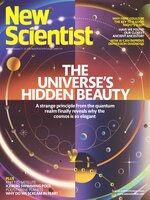 Jan 17 2026
Jan 17 2026
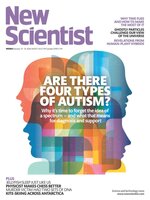 Jan 10 2026
Jan 10 2026
 Jan 03 2026
Jan 03 2026
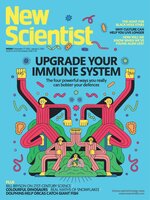 Dec 27 2025
Dec 27 2025
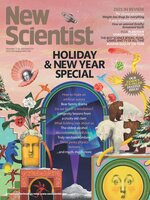 13-26 December 2025
13-26 December 2025
 Dec 06 2025
Dec 06 2025
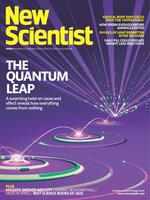 Nov 29 2025
Nov 29 2025
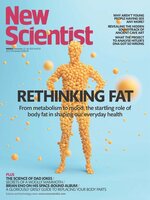 Nov 22 2025
Nov 22 2025
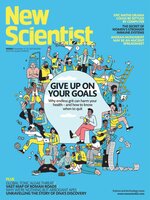 Nov 15 2025
Nov 15 2025
 Nov 08 2025
Nov 08 2025
 Nov 01 2025
Nov 01 2025
 Oct 25 2025
Oct 25 2025
 Oct 18 2025
Oct 18 2025
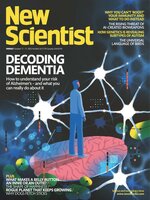 Oct 11 2025
Oct 11 2025
 Oct 04 2025
Oct 04 2025
 Sep 27 2025
Sep 27 2025
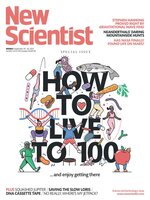 Sep 20 2025
Sep 20 2025
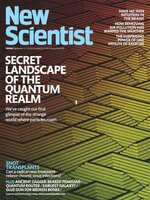 Sep 13 2025
Sep 13 2025
 Sep 06 2025
Sep 06 2025
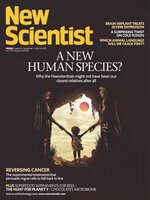 Aug 30 2025
Aug 30 2025
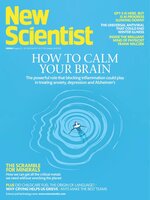 Aug 23 2025
Aug 23 2025
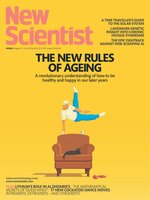 Aug 16 2025
Aug 16 2025
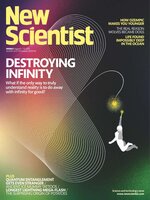 Aug 09 2025
Aug 09 2025
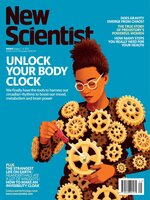 Aug 02 2025
Aug 02 2025